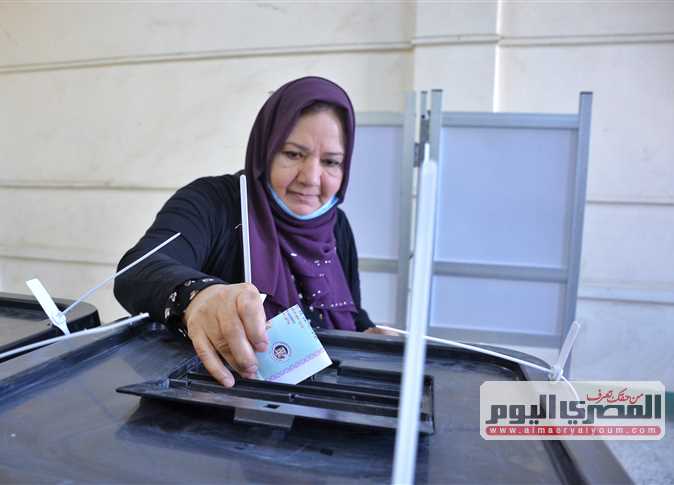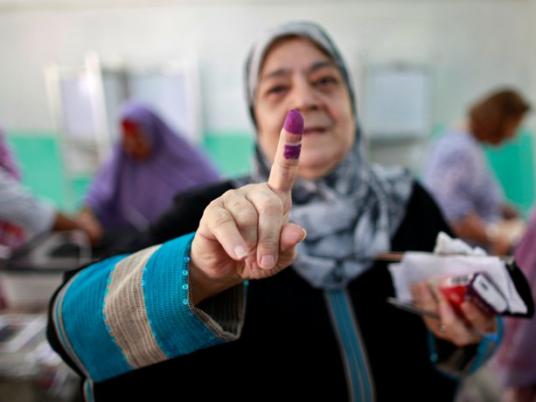The Armed Forces set 19 March as the date for a national referendum on the constitutional amendments drafted by a committee of experts, a statement said on Friday.
The referendum will be held on the amendment of seven articles of the current constitution, the abrogation of Article 179, which grants the government the right to infringe upon human and personal rights under the pretext of combating terror and the addition of a paragraph to Article 189, which allows the parliament to amend the constitution.
If they are approved by the referendum, the changes will provide a crucial framework for the next parliamentary and presidential elections.
Some welcomed the blueprint. Senior Muslim Brotherhood figure Mohammed Beshr said the proposals were a positive “first step in the right direction”.
“A lot more needs to be done, but let’s do that after the election when we have a new elected assembly making a new constitution.”
His views were echoed by Abouel Ela Mady, a former Muslim Brotherhood member who now leads the recently-approved Wasat Party.
He said he “accepted the changes in the majority” and that they would lead to “serious candidates” being fielded for the elections.
The commission amended article 76, which states that a presidential candidate needs to command a parliamentary majority during the nomination process, a condition considered draconian given the ruling party’s classic domination over parliament following fraudulent elections. Candidates could alternatively be part of a five-year-old party holding at least 3 percent of contested parliamentary seats.
But under the new constitution there would be three methods for candidacy: a presidential hopeful should either be endorsed by 30 members from one of the parliament’s two chambers or both, get 30,000 signatures from Egyptians living in 15 provinces or belong to a party that has at least one seat in the People’s Assembly or Shura Council, the two houses of parliament.
The new constitution also could see an end to Egypt's legacy of eternal rulers, with the amendment of article 77 that gave the president the right to run for indefinite consecutive six-year terms. The amendment limits presidential terms to two four-year periods.
Blogger and activist Wael Khalil was among those who expressed his support for the changes. He said he was “pleasantly surprised” by the commission’s suggestions.
“I am very pleased with them,” he said. “I thought we would never get limits on terms.
“It’s refreshing to see the people can represent the whole nation. When I heard them I thought ‘now we’re getting somewhere’. Now there are concrete proposals.”
Others however said the draft changes, which also include amendments to article 139 that would make it obligatory for the next president to appoint a deputy within the first two months of coming to power and article 88, which assigns electoral oversight to judicial authorities, did not go far enough.
Samer Soliman, a professor of political economy at the American University of Cairo, raised concerns that despite the proposed revisions to Article 88, there was "no guarantee" of comprehensive judicial oversight.
He said that there were too few judges to cover the entire country, and added, "It is good in comparison to what we had before, but it is not enough. I think we need international experts to come and monitor the situation."
The replacement of judicial oversight with a government-appointed commission to monitor the elections is widely associated with the high incidence of fraud in the 2010 parliamentary poll.
For Emad Gad, an analyst at Al-Ahram Centre for Political and Strategic Studies, “the key issue here is not these articles. The key issue is the authority of the president, and this has not changed.”
There has been speculation about how the president's powers would be defined once a new constitution is drafted by the new parliament. According to Soliman the debate will be over whether Egypt adopts a parliament-orientated European-style system or one which tilts more towards the American system, where the president has certain powers but they are checked heavily by the legislature.
Soliman said he favored the latter, adding, "We can't have a president like they have in Israel, where he is just a symbol.
"The president is important in creating national unity and starting long-term projects. In a parliamentary system he will be motivated only by short-term goals."
But Gad disagreed and said the main problem in Egypt was its "Pharonic political culture".
"It means we have a president who can run the institutions as he likes. We need to cancel this legacy."
Gad was also concerned with the pace and order with which elections would be conducted. He said Egypt was not ready to have parliamentary and presidential elections this summer – as the Armed Forces is reported to be planning.
“I’m not against these proposals for the constitution. But the key issue is that Egypt is not ready to have a vote.
“It’s important, but we need to look at the whole story, not just these articles. We have to have perspective concerning the stabilization of Egypt.”
Shady al-Ghazaly Harb, who represents the Democratic Front Party in the 25 January Youth Coalition, agreed.
He said, “There are some good amendments, but we don’t want a new constitution to be formed from a parliament elected in the next six months.”
As per the additional paragraph to article 189,the next elected parliament will use a 100-member elected commission to draft a new constitution in the first six months after its election. The commission will be expected to complete its mission within another six months. But the article’s main body still gives the president the power to decide on whether the constitution should be changed.
It is unclear whether the presidential election will precede the parliamentary poll, in which case there are no guarantees on whether the elected president will order the drafting of a new constitution. Moreover, it is also unclear what will define the powers of the next elected president; who on the onset would operate with the outgoing constitution, while a new one is in the making.
However, according to Soliman, the Armed Forces' decision to sack the cabinet should be seen as its recognition that the voice of the street now counts for something in Egypt.
But he added that the constitutional amendments might not lead to the kind of comprehensive change that demonstrators are looking for.
"We'll never go back to the old system, but the extent of change won't be as much as people want. Political institutions do not change at the same pace as the politics itself.
"It is normal after revolutions to have disappointment. But what is important is to keep the pressure on."




